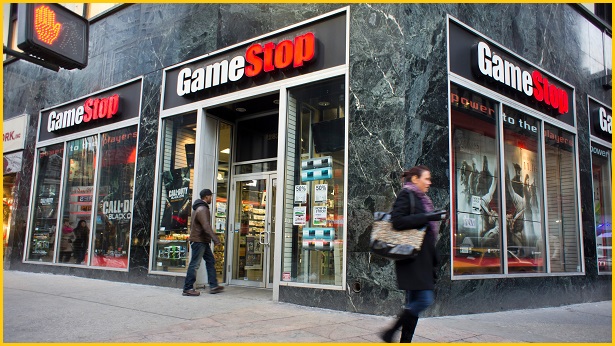White Square Capital, a British hedge fund that held short positions against US video game retailer GameStop, has been forced to close after suffering heavy losses earlier this year.
The firm said it was going to shut its main investment fund and return money to investors after a year of poor returns that included what the Financial Times described as “double-digit per cent losses” during GameStop’s unprecedented bull run in January.
GameStop was the centre of a mass financial movement popularised on the WallStreetBets subreddit last year when members of the forum began driving its share price up to thumb their noses at mainstream financial institutions who expected the stock to collapse.
Recognising that GameStop was being heavily shorted, the subreddit’s thousands of retail investors tried to orchestrate a short squeeze and successfully drove the price to its peak of nearly US$350 in late January – GameStop’s share price started the month at less than US$20.
Head of White Square Capital, Florian Konawitter, did not directly blame GameStop for the fund’s closure, instead pointing to market forces that have undermined its investment model.
“The decision to close down is related to thinking the equity long-short model is challenged,” Konawitter said in a statement seen by Financial Times.
“There are way too many fish in the pond with the same strategy of long-short. The traditional edge is being arbed away, there’s an oversupply of capital.”
White Square is one of the first major casualities of WallStreetBets’ concerted effort against hedge funds, but it isn’t the only one hurting.
Melvin Capital has reportedly lost around 44.7 per cent of its hedge fund’s value this year thanks to the record run from meme stocks.
Risky business
Adam Smith, CEO of Saxo Markets Australia, said short selling always contained risk for retail and institutional investors alike.
“Whether or not GameStop losses were the sole force behind White Square’s demise is being debated across the media, but the losses themselves were not insignificant having been reported to have reached double-digit percentages,” he said.
“As the dust settles it may emerge as a cautionary tale of unmitigated risk and a lack of portfolio diversity, as you never want a singular investment to be able to topple you.
“Retail investors looking on should take note of this and shed any illusions that short-selling stocks like GameStop is an easy way to make money.”
WallStreetBets’ challenge to the status quo led to members of the subreddit appearing in front of a US Congressional committee investigating the share price frenzy cooked up on social media.
The rapid rise of GameStop’s share price led to retail trading app Robinhood controversially pausing trading of the equity which led to attempted lawsuits.
GameStop – which largely runs brick-and-mortar video game stores – was largely perceived as an outdated business as the pandemic accelerated ecommerce and a shift away from physical retailers.
Just prior to its price surge, GameStop-owned Australian business EB Games announced it would close 20 “unprofitable” stores as it was coming up against an “ever-changing retail landscape”.
But some people persisted with GameStop and have created a self-fulfilling prophecy as the company switches its focus with new leadership.
“I’m as bullish as I’ve ever been on a potential turnaround,” said Keith Gill, one of the original posters who had penned multiple analysis posts about GameStop’s value.
“In short, I like the stock. And what’s stunning is that, as far as I can tell, the market remains oblivious to GameStop’s unique opportunity within the gaming industry.”
In the months since it took off as an internet sensation, GameStop has reshuffled its management, announcing former Amazon Australia head Matt Furlong as CEO and former Amazon executive Mike Recupero as CFO earlier this month.
The company said in its announcement of the new positions that its board has a new focus “on building a technology company and investing in growth”.










